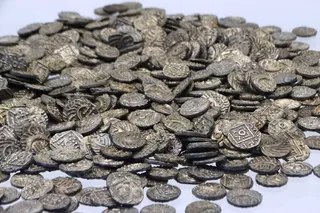In case you haven't picked up a newspaper in the past few days—or if you have, but the number of huge scandals has grown too big to digest in one sitting—a certain elite hedge fund manager by the name of Bernie Madoff has been accused of running a Ponzi scheme that defrauded hordes of the world's most elite investors out of a possible $50 billion. The level and depth of fraud, as well as the amount of money involved, could make this the single biggest scandal in financial history. So what path of psychology could possess someone to steal so much, so blithely and brazenly, for so long? How can white-collar criminals, who typically lack the sociopathic personality that accompanies more violent crimes, lie so much and so well to the point where reality (and astronomical sums of money) are lost? Lauren Cox at ABC News spoke to one such ...
What, Me? Steal? The Psychology of Bernie Madoff
Explore the psychological intricacies of Bernie Madoff's Ponzi scheme and how it became the biggest scandal in financial history.
More on Discover
Stay Curious
SubscribeTo The Magazine
Save up to 40% off the cover price when you subscribe to Discover magazine.
Subscribe












